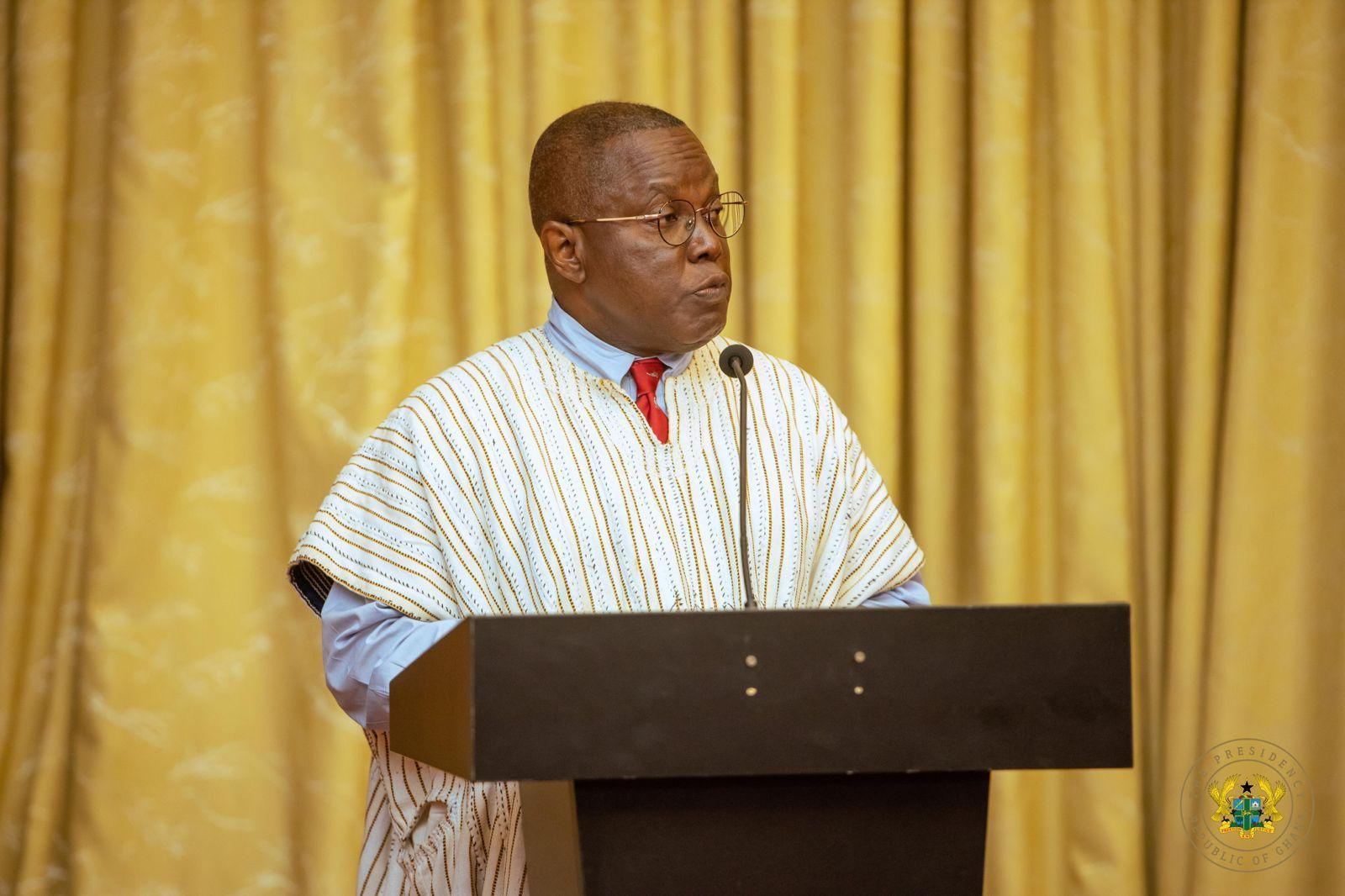Africa-Press – Ghana. Dr Nii Moi Thompson, Chairman, National Development Planning Commission (NDPC) has commended President John Dramani Mahama for his recent decision to give back district assemblies the responsibility to manage their own sanitation.
“We need more of such decentralisation. The practice of procuring goods and services for District Assemblies from Accra does not only undermine their ability to manage their own affairs, but it also represents the extraction and repatriation of wealth from those districts to Accra,” Dr Thompson stated, during the inauguration of the Eighth NDPC by President John Dramani Mahama at the Presidency in Accra.
Dr Thompson added: “It aggravates inequality and undermines the Constitutional objective of equitable development. We will support you, Mr President, to deepen this major move in decentralisation.”
The 37-Member NDPC replaces the previous 49-Member Commission.
Dr Thompson, on behalf of his fellow Commissioners, expressed gratitude to President Mahama for entrusting them with such an important responsibility.
“On behalf of all the commissioners, I would like to pledge our commitment to fulfil, to the best of our ability, the duties and obligations that come with this responsibility,” he said.
Dr Thompson highlighted on the structure and work of the Commission for the benefit of the public.
He noted the reduction in the number of commissioners from 49 in the past to 37 now, and said the number might still seem large, but they would work through eight sub-committees in areas, such as the economy.
The commission would focus on fiscal and monetary policy, transport and logistics, critical to the development of a 24-Hour Economy programme.
The rest are energy and private sector development, agriculture and natural resources, employment, productivity, and earnings, public sector reforms and governance, social development, and infrastructure and land use management.
He said through the work of the committees and research by technical staff, the Commission was expected to advise the President; adding that this had been the case since 1994.
He said, however, the law also requires the Commission to provide a wider platform for Ghanaians from all walks of life, including parliamentarians, political parties, faith-based organisations, sector ministries, district assemblies, traditional authorities, civil society organisations, think tanks, and individuals who have something to say about their country, among others, to contribute to national development planning for the long, medium, and short terms.
It is a comprehensive framework that blends popular demands with structured research.
Besides development planning, the Commission is also mandated to monitor and evaluate the performance of the government. This is done that through annual progress reports, which include a wealth of information, but, regrettably, remain obscure.
“We will change that, while also digitising the process to give the public the chance to do what is called “civic auditing,” Dr Thompson.
He also highlighted the Commission’s role as a brain trust of government on a variety of topics of relevance to Ghana’s development agenda; such as giving development a human face and productivity.
With regards to productivity, Dr Thompson recalled that during the last campaign, President Mahama said that “Ghana must function efficiently.”
For More News And Analysis About Ghana Follow Africa-Press







